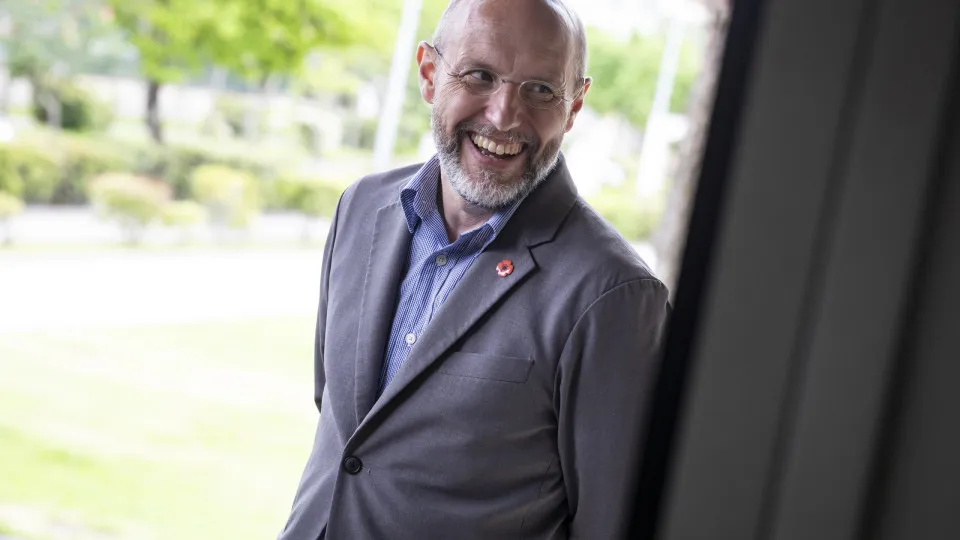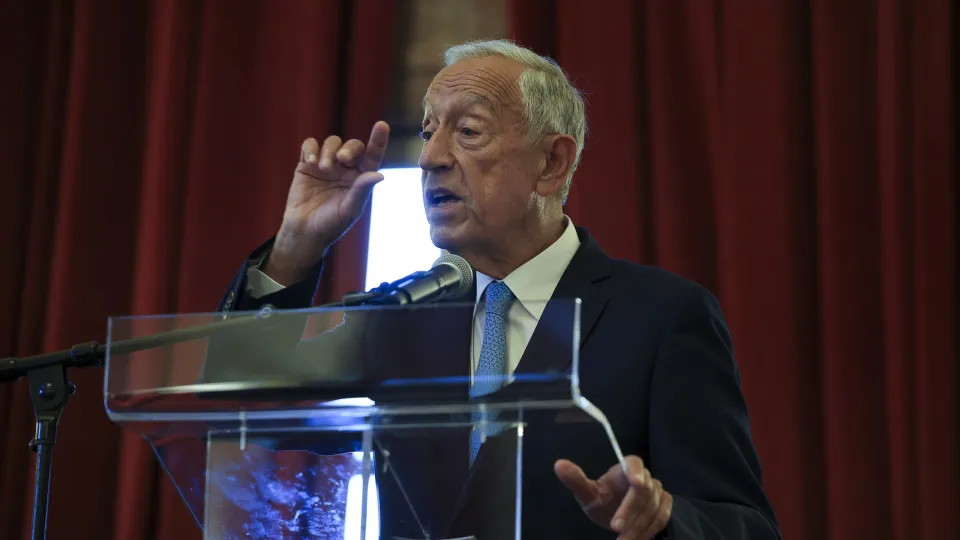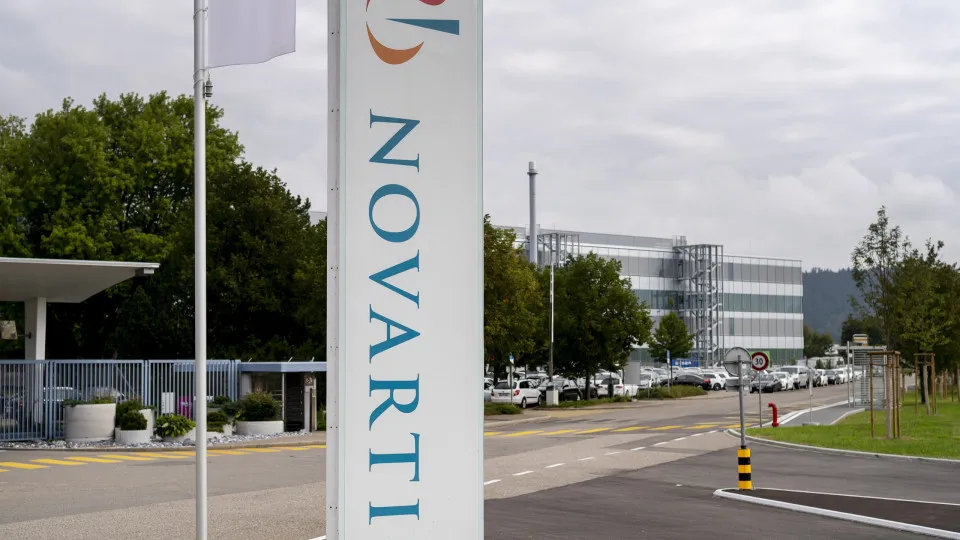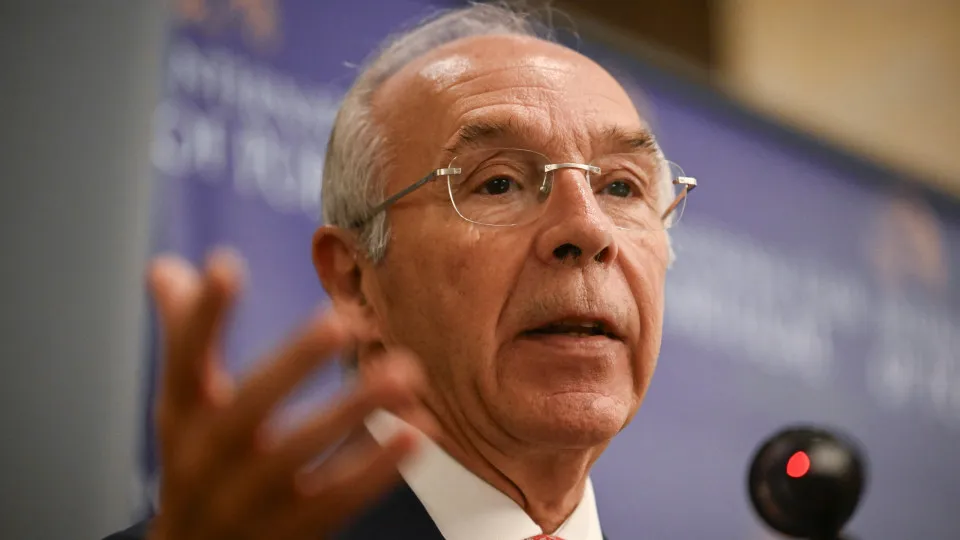
On the fifth official day of the campaign for the municipal elections scheduled for the 12th, Rui Tavares and BE leader Marisa Matias, representing the national coordinator Mariana Mortágua, joined forces for a brief visit to the Loures market. This municipality is where the two parties are contesting the council alongside PAN in the coalition “Building the Future.”
Luís de Sousa (Livre) is the leading candidate for the Loures City Council, while Rita Lage Sarrico (BE) heads the list for the Municipal Assembly.
In Loures, the current president and candidate for re-election is Ricardo Leão from the PS. His tenure has been marked by controversial positions, especially concerning shantytowns, which have even divided his own Socialist party.
Moments before the arrival of the Livre’s spokesperson, who joined the group about half an hour late, Leão passed through the market, but the two groups did not cross paths.
When asked about the possibility of an alliance with the PS in this municipality, as seen in places like Lisbon, Tavares responded that it was “clearly not” possible, emphasizing that each situation is unique.
“Here, with Ricardo Leão, given everything he’s done, engaging in a policy fundamentally chasing after the populism we’ve seen, degrading the level of politics, attacking people for their rights, sowing discord among neighbors over support discrepancies, we cannot simply say ‘oh, Leão!’ Instead, we might regretfully say, ‘oh, Leão, what a pity’,” Tavares remarked.
Addressed about the statements by the Prime Minister and PSD President, Luís Montenegro, who during the campaign argued that shantytowns have predominantly reemerged in socialist and communist municipalities—a claim disputed by PS and CDU (PCP/PEV coalition)—Tavares expressed regret over these exchanges of accusations.
“I think politics is in poor shape when politicians from parties as vital to our democracy and political history as PSD, PS, and PCP, are engaging in blame games over who is more at fault for the return of shantytowns,” Tavares criticized.
Tavares reflected on when “there was a Jorge Sampaio, politicians whose service records for the Portuguese Republic included the eradication of shantytowns.”
“Proper eradication of shantytowns, the good kind, where people have alternatives and these alternatives are constructed much more swiftly than we see today,” he emphasized.
The Livre spokesperson advocated for creating “a National Housing Service” capable of certifying new construction methods like “modular, wooden, 3D-printed structures that offer comfort,” instead of casting blame.
“That’s what we could be doing in Portugal and here in Loures, rather than politicians focusing on social media antics that generate clicks and chatter at the expense of substantial action,” he asserted.
Alongside him, Marisa Matias underscored that the coalition’s goal is “to demonstrate that there is space for different kinds of policies, ones based on empathy, fostering collective projects where leftist forces unite for greater impact.”
“Housing is an absolutely central issue, and the housing policies of the PS in this municipality fall short of what one expects from socialist party policies, I must say, and therefore there is an alternative,” she added.
Amid a few sales calls, the modest entourage distributed leaflets through the stalls, where Rui Tavares and Marisa Matias navigated the space usually occupied by vendors and received a wish of “good hope” from a local woman.
The candidates for Loures City Council in the district of Lisbon in the municipal elections include Ricardo Leão (PS), Gonçalo Caroço (CDU), Nélson Batista (PSD), Bruno Nunes (Chega), Luís de Sousa (Livre/BE/PAN Coalition), Isabel Elias (MPT), Luís Martins (IL), and João Gomes (ADN).
The current executive in Loures consists of four PS representatives, including the president, four CDU members, two from PSD, and one from Chega. The Municipal Assembly is led by PS, but lacks an absolute majority.




